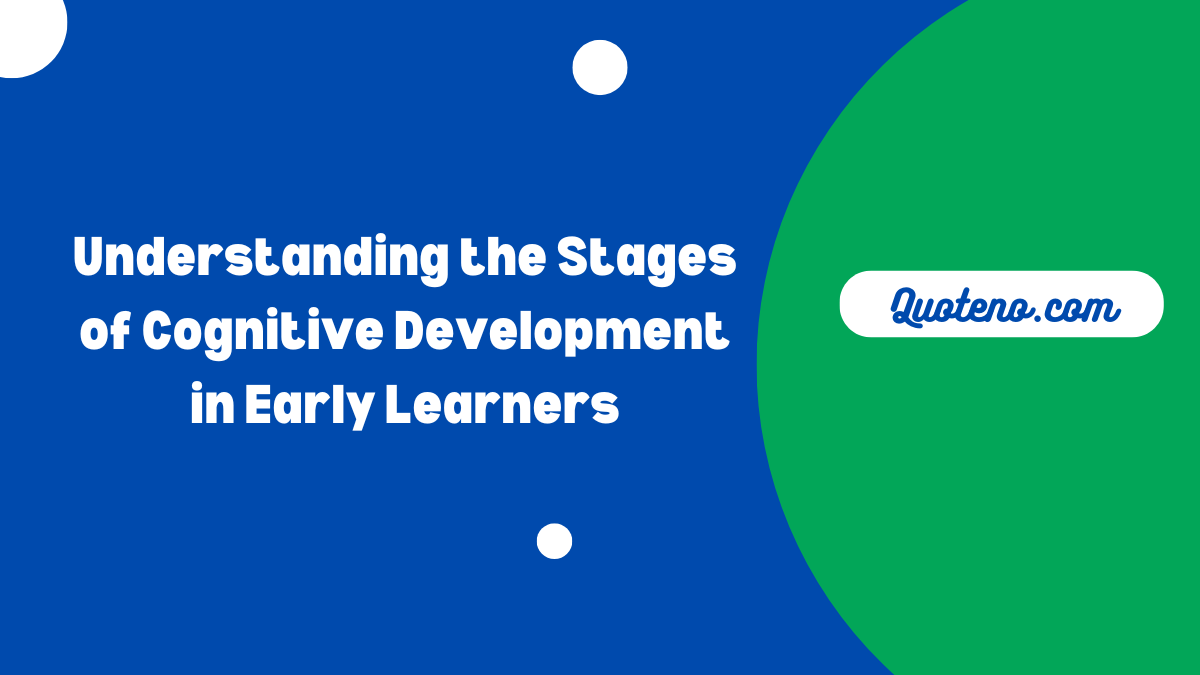Cognitive development in early learners is a dynamic process that shapes how children think, solve problems, and interact with the world. Babies begin absorbing information from birth—experimenting, observing, and making sense of their surroundings. These foundational moments, such as tracking a moving object or reaching for a favorite toy, spark critical neural connections that drive future learning.
For families seeking enriched environments that combine structured and flexible learning, programs specifically designed for before and after school care severna Park, MD are increasingly popular. Such settings expose children to varied experiences, fostering curiosity and resilience from an early age.
Table of Contents
Major Stages of Early Cognitive Development
According to respected developmental theorists like Jean Piaget, children move through distinct cognitive stages, though each child’s pace and individual strengths may differ. During the sensorimotor stage (birth to approximately 2 years old), children explore the world through movement and sensation, gradually realizing object permanence. As children grow into preoperational (ages 2 to 7), their imagination flourishes. They begin using words and images to represent objects, though they still tend to view the world from their own perspective.
During these stages, symbolic play—like pretending a block is a car or engaging in role-play—is a sign of healthy cognitive growth. The New York Times research shows that incorporating play into daily routines directly supports children as they explore and solidify new concepts.
Everyday Strategies to Encourage Cognitive Skills
Nurturing cognitive development doesn’t require fancy tools. Everyday moments are powerful learning opportunities when adults are present, encouraging, and responsive. Here are a few effective strategies:
- Talk frequently with your child about what you see and do together, sparking language growth and critical thinking.
- Offer simple puzzles and sorting toys to build problem-solving abilities and fine motor skills.
- Make reading a daily ritual, discussing the story, and asking open-ended questions to foster memory and comprehension.
- Encourage pretend play, which helps children explore new ideas and practice social roles.
According to Edutopia, even brief, focused play or dialog can help children develop attention span, planning skills, and creativity in ways that last well into elementary school.
The Role of Family and Community Support
Consistent support from family and community creates a safe base for children to take intellectual risks and seek help when needed. Caregivers who model curiosity—asking “why,” exploring new places, or reading for pleasure—teach that learning is both valuable and enjoyable.
Structured programs, local libraries, or child-friendly museums further expand children’s horizons, allowing for social learning, active exploration, and exposure to new ideas. Participating in the community helps kids develop a good self-image and a sense of belonging and improves cognitive abilities.
Looking Ahead: Lifelong Impacts of Early Cognitive Care
Prioritizing cognitive development in early learners sets a lifelong foundation for academic achievement, adaptability, and curiosity. The positive effects of responsive care and stimulating environments can last far beyond early childhood, increasing the likelihood of future success and a continued love of learning. By understanding developmental stages and using practical strategies at home and in educational settings, parents and educators help children thrive in school and throughout their lives.
Frequently Asked Questions
What is cognitive development in early learners?
Cognitive development refers to how young children build thinking skills, learn problem-solving, and understand the world through memory, attention, and language. It sets the foundation for future learning and reasoning.
Why is the early childhood cognitive phase so important?
The first five years are a critical period when the brain forms dense neural connections. Experiences during this time influence lifelong learning, social-emotional growth, and academic success.
How do stages like Piaget’s Sensorimotor stage impact early learning?
According to Piaget, from birth to age two (Sensorimotor stage), children learn through senses and actions—developing object permanence and cause-and-effect understanding, which are key for early reasoning.
What activities support cognitive growth in toddlers?
Simple games like puzzles, blocks, pretend play, and singing nursery rhymes boost critical thinking, language, memory, and creativity. These play-based activities strengthen neural pathways effectively.
How can caregivers enhance early learners’ cognitive skills?
Caregivers should talk and read aloud daily, ask open-ended questions, encourage problem-solving, and offer safe environments for exploration. These habits nurture language fluency, independent thinking, and cognitive flexibility.
- How To Propose A Boy The Complete Guide to Reversing Tradition - February 24, 2026
- Future Trends in Custom Metal Fabrication - February 24, 2026
- How Auto Loan Refinancing Rates Affect Your Monthly Payments - February 24, 2026

